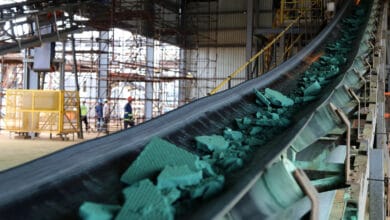Namibia remains one of Africa’s most attractive destinations for exploration and mining investment, with its prominence steadily increasing.
This has been demonstrated by the sector creating 2 600 new jobs in 2024.
The deputy head of the upstream petroleum unit in the Presidency, Carlo McLeod, said this while speaking on behalf of president Netumbo Nandi-Ndaitwah at the Mining Expo and Conference, which kicked off in Windhoek yesterday.
Mcleod said the mining sector’s achievements were aligned with broader national goals, particularly the sixth National Development Plan (NDP6), which prioritises industrialisation, inclusivity and sustainable economic growth.
He said Namibia’s mining sector continues to demonstrate resilience and potential.
“Namibia remains one of Africa’s most attractive destinations for exploration and mining investment.” Carlo McLeod
“Despite significant global headwinds and a contraction of 1.2% in 2024, the mining sector remains the bedrock of the Namibian economy. The industry generated N$52.3 billion in revenue, contributed 13.3% to our gross domestic product, and created over 2 600 new jobs, bringing total direct employment to 20 843, a 14.6% increase from the previous year,” he said.
Deputy prime minister and minister of industries, mines and energy Natangue Ithete highlighted the sector’s capacity to empower communities and stimulate economic transformation.
He called for a new era of purpose-driven mining, rooted in transparency, local empowerment and national development.
Ithete urged industry stakeholders to go beyond traditional corporate responsibility and ensure that the benefits of Namibia’s mineral wealth reach all corners of society.
“Let us mine not only for profit, but for our people. Our minerals must uplift lives, not just in boardrooms, but in the most remote areas of our country,” he said.
Ithete said Namibia is actively consulting with industry stakeholders on mechanisms to promote 51% Namibian ownership in new mining ventures.
He said local empowerment is not only a matter of social justice, but also a cornerstone for long-term stability and sustainability in the sector.
“Among all these good developments, several licences have been issued where no activity has commenced. This must change because mineral rights are granted with the intention of production,” he said.
Chamber of Mines of Namibia president George Botshiwe highlighted the sector’s resilience and alignment with national priorities.
“These achievements reflect the sector’s alignment with our broader national goals, particularly the NDP6, which prioritises industrialisation, inclusivity and sustainable economic growth,” he said.









